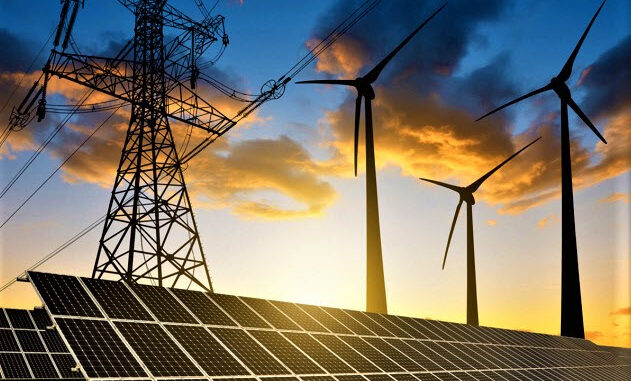
Investors are increasingly piling into clean energy start-ups to take them public and help them raise funds to develop their low-carbon solutions.
Many of those investors opt to do so via the hottest Wall Street trend of last year—SPACs, or special purpose acquisition companies, commonly known as blank-check companies.
SPACs are public companies, and in recent years, they have become a popular vehicle for taking a private company public after a merger or an acquisition.
Blank-check companies are an opportunity for start-ups in the clean energy sector to access funding to develop their concept technology. For investors, setting up a SPAC and picking an alternative energy firm to help it list on the market is part of addressing the growing pressure on Wall Street for more capital and investments into renewable energy sources in the energy transition.
Start-ups See SPAC Advantages
Blank-check companies could be a new investment opportunity for the energy sector, as well as a much-needed and more streamlined listing process for a start-up than the traditional initial public offering (IPO), analysts say. SPACs also give early-stage start-ups, such that haven’t commercialized their product yet, access to funding.
Moreover, the target company and the SPAC have more control over the valuation of the business, unlike in the typical IPO process where the market usually dictates how much the market valuation should be.
Sure, there were some notorious flops after SPACs took start-ups public. The most notorious of all is the case of Nikola Motors, whose founder Trevor Milton was indicted last month by a grand jury with three counts of criminal fraud for lying about “nearly all aspects of the business.”
Milton maintains he is innocent and that “this is a new low in the government’s efforts to criminalize lawful business conduct. Every executive in America should be horrified.”
Lordstown Motors, which went public after a SPAC takeover last year, warned in June that it was running out of cash and could collapse by year’s end. The SEC has started an investigation into Lordstown Motors’ vehicle pre-orders and its merger with SPAC DiamondPeak Holdings.
The SEC has also reportedly opened a general inquiry into SPAC deals over potential conflicts of interest, with banks acting as underwriters and advisers at the same time.
SPACs Targeting Clean Energy Are Booming
Despite these potential red flags about the SPAC boom on Wall Street, the blank-check company frenzy continues, including with green energy start-ups.
SPAC managers need to perform careful due diligence to pick the clean energy firms that could make it big and disrupt their sector, analysts say.
“Energy companies with a technology aspect to their business or a focus on renewable energy may be best placed to take advantage on the SPAC boom,” Jack Mason-Jebb, corporate solicitor, and Brad Isaac, corporate partner, at European law firm Fieldfisher wrote in May.
Amid the SPAC boom, more and more blank-check companies include investment bankers and executives with previous experience in the oil and gas sector, according to SEC filings of SPACs reviewed by Reuters.
They have already set up 20 blank-check companies, and more are coming, as per Reuters data.
The SPAC frenzy has reached the renewable energy business, with a lot of high-profile deals announced in recent months. For example, Li-Cycle, the biggest battery resource recycling firm in North America, said in February that it would list on NYSE through a merger with Peridot Acquisition Corp, a publicly traded SPAC sponsored by Carnelian Energy Capital. Altus Power, a solar power developer, is merging with CBRE Acquisition Holdings, with the combined business expected to be listed on the NYSE. Heliogen, which provides AI-enabled concentrated solar power, is merging with the SPAC Athena Technology Acquisition Corp.
“Chairwoman Isabelle Freidheim and I co-founded Athena with a mission to work with disruptive technology companies with the potential to advance industry, and even society, through innovation. Heliogen absolutely meets that standard, not only in terms of solar-power generation, but in its ability to produce other sources of clean energy that may replace fossil fuels,” Athena’s CEO Phyllis Newhouse said.
More SPAC Funding for Clean Energy Is Coming
“Climate tech companies are taking advantage of the popularity of SPACs and leveraging the vehicle for liquidity and capital,” Silicon Valley Bank (SVB) said in a report last month.
SVB expects between $35 billion and $40 billion to flow to U.S.-based, venture capital-backed climate tech companies through SPACs in the next 24 months.
“As the dangers of climate change have become clearer and the technologies aimed at reducing these impacts have matured, more investors and entrepreneurs have turned their attention to climate tech,” said Kelly Belcher, Managing Director of SVB’s Energy & Resource Innovation (ERI) practice and author of the report.
As of the spring of 2021, as many as 28 SPAC-acquired companies involved in the energy transition were trading on public markets, with a median market capitalization of $1.1 billion, data from Wood Mackenzie and accounting firm CohnReznick showed.
“Clean energy SPACs will likely experience another record-setting year in 2021,” CohnReznick’s mini brief from May said.
At that time, WoodMac had already identified more than 50 launched or announced SPACs that would target the energy transition and decarbonization sectors, with over $15 billion in total funding at the time of IPO.
But it’s not so easy to find a target matching all the requirements of the SPAC and its sponsors—not every start-up with promising technology to change the world will make it.
“What SPACs do is allow industry experts to raise money and go find a diamond in the rough,” Travis Wofford, vice-chair of mergers and acquisitions at law firm Baker Botts, told Quartz’ climate reporter Tim McDonnell last month.
By Tsvetana Paraskova for Oilprice.com



